Former Nomad chief Sayed Moosawi allegedly Bondi firebombing ringleader ‘James Bond’
A former high-ranking bikie boss was the alleged mysterious ‘James Bond’ who directed criminals to firebomb a Bondi brewery they appeared to mistake for a Jewish kosher deli.
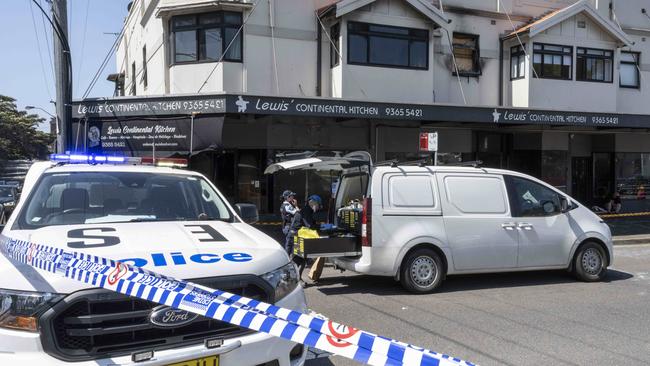
A former high-ranking bikie boss was the alleged mysterious “James Bond” who directed criminals for hire to firebomb a Bondi brewery they appeared to mistake for a Jewish kosher deli.
After they realised they hit the wrong target, police allege, former Nomad leader Sayed Moosawi – known to his alleged guns-for-hire as “James Bond” – allegedly took matters into his own hands and destroyed the deli himself.
Moosawi denies the allegations and intends to fight the charges.
It comes as NSW Police and the Australian Federal Police arrested and charged 14 people on Monday linked to Sydney’s recent anti-Semitic attacks, allegedly at the behest of an unknown mastermind – who is not Moosawi – and remains at large.
After Monday’s dawn raids and revelations, NSW Police confirmed that all 14 people arrested during that operation had been charged, totalling 65 alleged offences across different anti-Semitic attacks since December.
One of those is former Nomads Parramatta chapter president Moosawi, 32, who police allege directed the October brewery firebombing and carried out the deli attack, both in Bondi.
The Australian previously revealed how two of the arsonists – Craig Bantoft and Guy Finnegan – had carried out orders for cash to destroy the Curley Lewis Brewery at the direction of a man they simply called “James Bond”, in what appeared to be a case of mistaking the business with a nearby kosher deli sharing a similar name.
NSW Police apprehended Moosawi on Monday and charged him with directing a criminal group, and two charges of destroying both the Curley Lewis Brewery and Lewis’ Continental Kitchen.
In the case of the beer house, Moosawi’s charge relates to directing Bantoft and Finnegan to carry out the attack on October 17, whereas he himself is accused of destroying Lewis’ Kitchen, a kosher deli, a few days later.
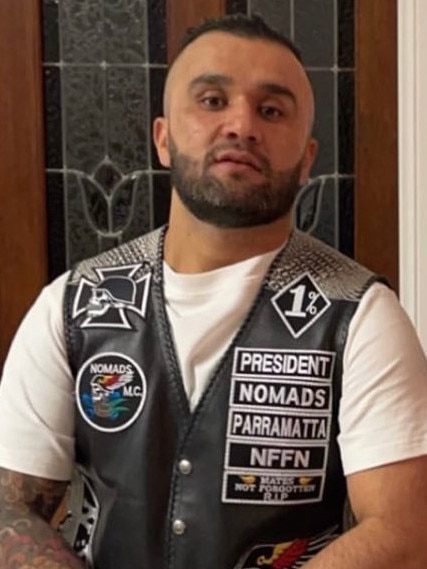
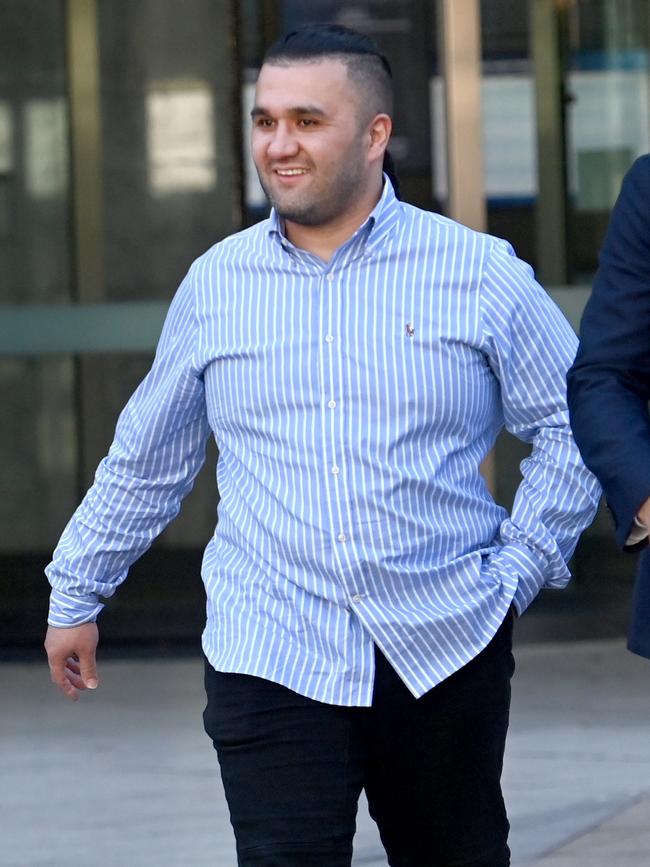
After Bantoft and Finnegan torched the brewery – they poured petrol under its front door, before then throwing lit paper, which set it alight – they conversed on encrypted messaging chat Signal, revealing they had taken the orders from the unknown man under the alias “James Bond”.
“James Bond” had told Finnegan and Bantoft that they’d “f..ked it up”, and that the target was barely burnt.
“Use f..ked the whole thing now... If use f..king couldn’t do it from the start then why did use even went there for f..k me – its not even done 2% burned f..k me dead (sic),” Bond said.
Bantoft asked Finnegan whether “(James Bond) is paying us or nah”, who responded: “I’m starting to think he has sent us to the wrong place lol.”
Moosawi was refused bail and his matter was briefly mentioned at Waverley Local Court on Tuesday, where his solicitor entered not guilty pleas on his client’s behalf, The Daily Telegraph reported. The solicitor told media outside the court that Moosawi denied the allegations and would fight the charges.
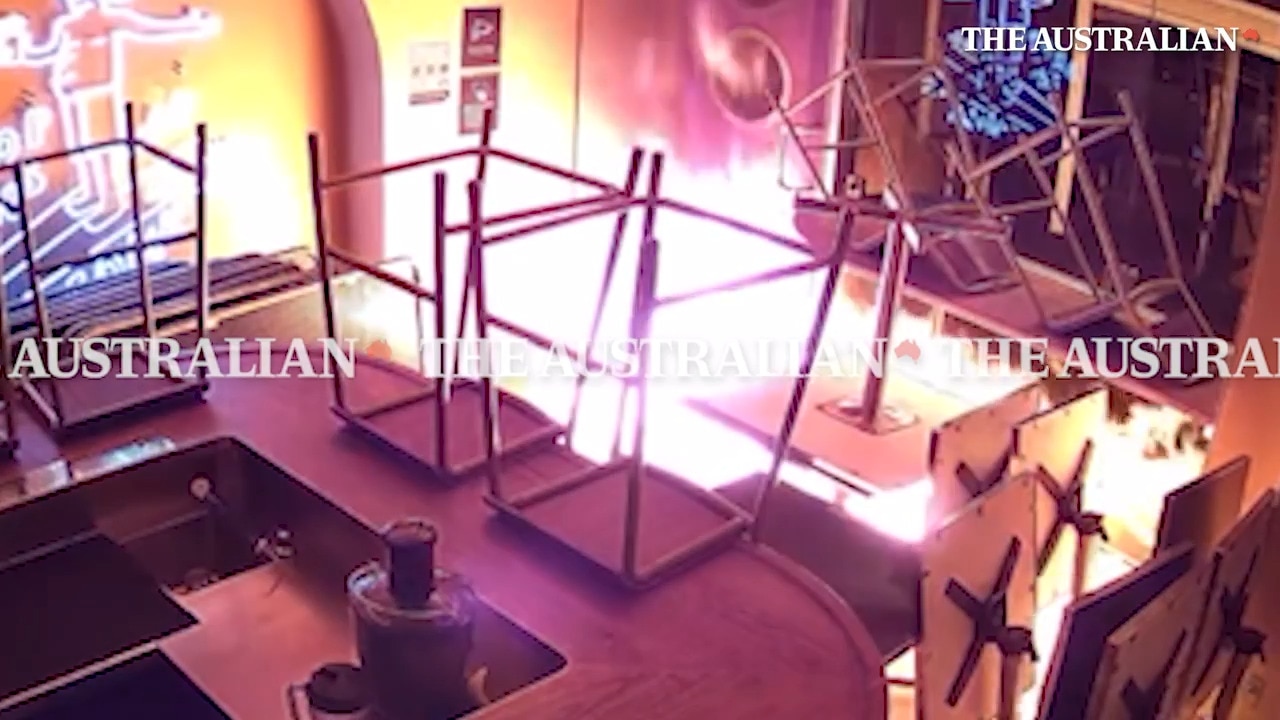
Finnegan and Bantoft pleaded guilty for their involvement in the brewery. Two other men are before the courts accused of also carrying out that second Bondi arson attack.
Moosawi was the chief of the Nomad’s Parramatta chapter as recently as 2021.
The charging of a former high-ranking Nomads leader adds a further layer of intrigue to the polices’ sweep of raids and ongoing investigations, particularly as the alleged “puppetmaster” is a “known organised crime figure”, believed to be offshore. He is neither arrested or charged, although the AFP have an “operational strategy” in place to target the individual.
The alleged mastermind “pulled the strings” on the spate of Sydney’s anti-Semitic attacks from “afar”, understood to be while based on foreign soil, and had sought to leverage information about an abandoned explosives-laden caravan with police to secure leniency in a separate criminal case.
More than 250 investigators from NSW Police and the AFP carried out the 11 search warrants on Monday, bringing the total number of people charged under the state hate-crimes unit to 29 with almost 150 tabled charges.
Five of the 14 people arrested faced court on Monday, with a further four – including Moosawi – appearing on Tuesday.
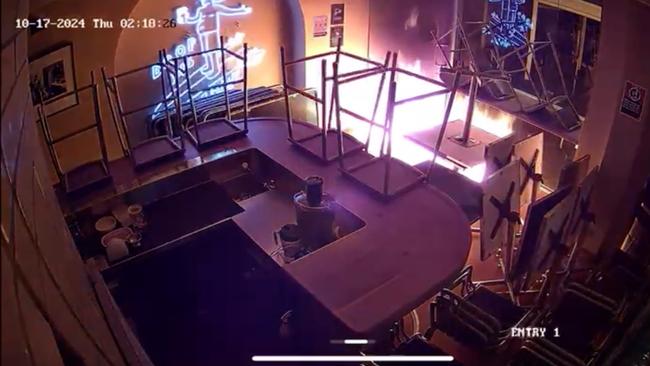
NSW Premier Chris Minns had first labelled the caravan as a potential “mass-casualty event” and “terrorism”. Police have now called it a “criminal con job” and “fabricated terror plot” in a foiled attempt for criminals to use as a bartering tool to reduce their sentences or drop charges.
On Tuesday, the premier defended his then-description of the caravan plot, saying that despite the revelation of fabrication of the incidents, “the terror and fear that was struck by these individuals was real”.
“It still happened, and it was appalling for the community, particularly the Jewish community in NSW,” he said.
Asked whether it was correct to describe the Dural incident as a potential mass casualty event at the time, Mr Minns defended his decision to “jump to the worst-case scenario”.
“Obviously, when it was discovered, we and the NSW Police took it equally seriously, and it could have been a mass casualty event,” he said.
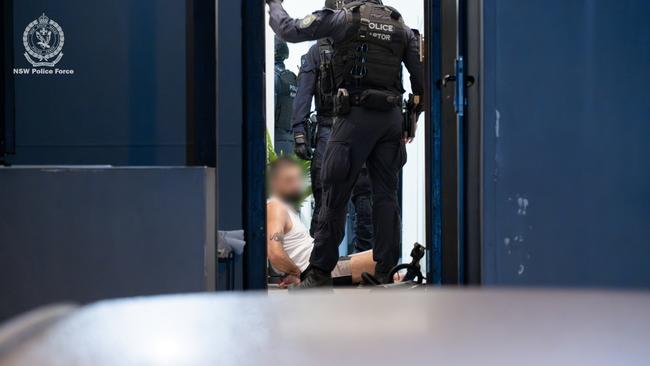
“I think anyone or any reasonable person in those circumstances would expect the government and the police to jump to the worst-case scenario.”
Home Affairs Minister Tony Burke also accused Peter Dutton of making public comments that were “exactly what organised crime wanted the narrative to be” in relation to the Dural caravan event, saying that the Opposition Leader had been “reckless with national security” and using the incident for his “self-promotion ambitions”.
“The script that Peter Dutton was running was exactly what organised crime wanted the narrative to be. They may as well have written Peter Dutton’s words for him,” Mr Burke alleged on Monday.
“That is the definition of recklessness and to simply take a briefing and to listen to the advice that ASIO had given publicly about lowering the temperature would have resulted in very different behaviour and behaviour that did not suit the narrative of organised crime.”





